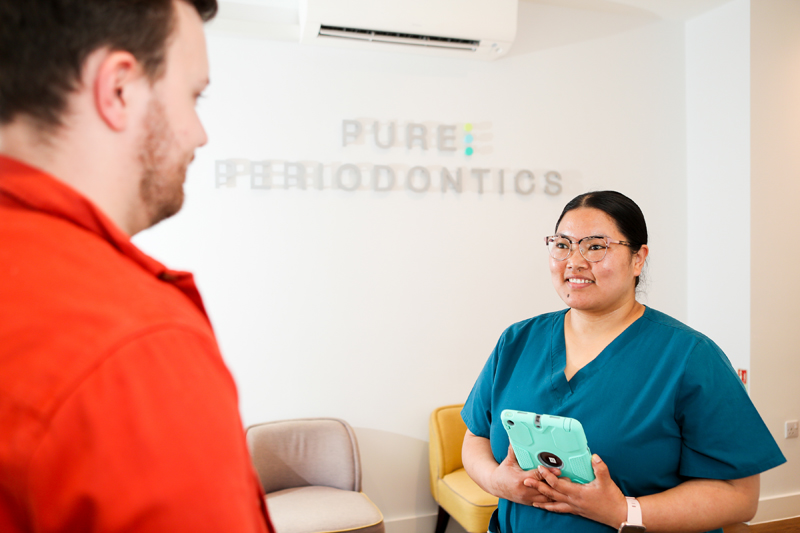Bad breath, medically termed halitosis, is a common problem affecting millions of people worldwide. It can be embarrassing and may even harm social interactions and self-esteem. Let’s delve into the causes, how to diagnose it, and potential treatments.
Causes:
- Oral bacteria: Our mouths are home to hundreds of types of microorganisms. When they feed on the food particles in our mouth, they produce foul-smelling compounds, primarily responsible for bad breath.
- Poor oral hygiene: Not brushing and flossing regularly allows food particles to remain in the mouth, leading to bacterial growth.
- Dry mouth: Saliva helps cleanse the mouth. Conditions that cause dry mouth can lead to bad breath.
- Food: Consuming onions, garlic, and certain spices can cause bad breath. After digestion, these foods enter your bloodstream, are carried to the lungs, and affect your breath.
- Smoking & tobacco: Besides causing bad breath, they damage the gums and can cause gum disease.
- Medical conditions: Some diseases like acid reflux, diabetes, and liver or kidney problems can lead to bad breath.
Diagnosis:
Bad breath can be embarrassing to talk about, but a dentist can help identify the cause. A dentist will:
Smell your breath: They can differentiate between general mouth odor and breath due to an underlying health condition.
Review dental history and habits: They might ask about your diet, medications, or other relevant factors.
Treatment:
- Oral hygiene: Brush at least twice a day and floss daily. Replacing your toothbrush every 3-4 months and regular dental checkups are also essential.
- Stay hydrated: Drink ample water throughout the day to prevent dry mouth. Chewing sugarless gum can also stimulate saliva production.
- Dietary changes: Avoid foods known to cause bad breath. If you consume them, ensure you brush or rinse your mouth afterward.
- Quit smoking: Besides helping with bad breath, it’s beneficial for overall health.
- See a doctor: If bad breath persists despite your best efforts, it might be a sign of an underlying health condition. Visit a physician to get checked.
In conclusion, while bad breath can be unpleasant, it’s often preventable and treatable. Prioritize your oral health, and if the problem persists, seek professional advice. Your breath is a window into your overall health; keep it fresh!
If you’re concerned about gum disease or would like more information, please call us on 020 3740 1819 to speak with our friendly team or fill out our contact form.

